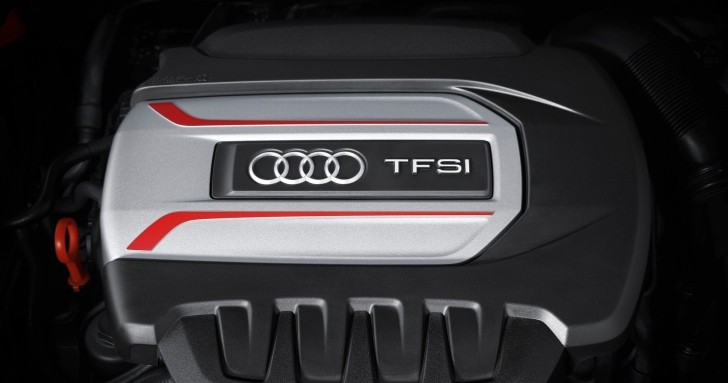Audi’s engineers are currently working overtime to develop the carmaker’s next-generation petrol engines and, as usual, the Germans have quite a plan. The entire VW Group is looking to boost efficiency in its quest to become the #1 car company in the world and we should expect some radical technical solutions.
Ulrich Hackenberg, the man in charge of Audi’s technical efforts, used the recent Audi annual conference to reveal that the most advanced features will be variable compression ratios, as well as electro-mechanical assistance for forced induction.
The industry has been hard at work to develop a feasible technical solution for a variable compression ratio for quite some years now. Despite the results still appearing to be some years away, Audi claims it will integrate this in its future powerplant developments. Nonetheless, the company hasn’t offered any details on the actual solution to be used.
The most likely solution is to modify the compression chamber’s volume by altering the throw of the camshaft or acting on the conrods.
As for the electrical assistance of the forced induction process, Audi has already shown this back in 2012, with a twin-turbo V6. The principle here is simple - conventional turbines suffer from lag at low revs, as there are simply not enough exhaust gasses to spin the turbo. The problem is solved using electric power. For instance, this is one of the big changes introduced on the 2014 Formula One cars, with their downsized 1.6-liter turbo engines.
Moreover, the VW Group plans to expand the coasting function currently offered on a part of its dual-clutch transmissions. The Germans use four stages to classify the technology. While the current implementations sits at the lower end of this scale, level two would see the powetrain being decoupled when the car is driving at speeds under 4 mph (11 km/h).
What the engineers finally want to achieve is a system that decouples the transmission and turns the engine off in all the scenarios that allow this: when the car is cruising, going downhill or approaching a traffic light that is on its way to turning red.
The VW Group’s efforts will see gasoline engines move one step closer to diesels in terms of economy. Of course, the newfound complexity of the petrol burners will also mean that they lose some of their maintenance advantage. Overall, the move will allow us to spend more time in the company of our favorite fuel.
Via: autocar
The industry has been hard at work to develop a feasible technical solution for a variable compression ratio for quite some years now. Despite the results still appearing to be some years away, Audi claims it will integrate this in its future powerplant developments. Nonetheless, the company hasn’t offered any details on the actual solution to be used.
The most likely solution is to modify the compression chamber’s volume by altering the throw of the camshaft or acting on the conrods.
As for the electrical assistance of the forced induction process, Audi has already shown this back in 2012, with a twin-turbo V6. The principle here is simple - conventional turbines suffer from lag at low revs, as there are simply not enough exhaust gasses to spin the turbo. The problem is solved using electric power. For instance, this is one of the big changes introduced on the 2014 Formula One cars, with their downsized 1.6-liter turbo engines.
Moreover, the VW Group plans to expand the coasting function currently offered on a part of its dual-clutch transmissions. The Germans use four stages to classify the technology. While the current implementations sits at the lower end of this scale, level two would see the powetrain being decoupled when the car is driving at speeds under 4 mph (11 km/h).
What the engineers finally want to achieve is a system that decouples the transmission and turns the engine off in all the scenarios that allow this: when the car is cruising, going downhill or approaching a traffic light that is on its way to turning red.
The VW Group’s efforts will see gasoline engines move one step closer to diesels in terms of economy. Of course, the newfound complexity of the petrol burners will also mean that they lose some of their maintenance advantage. Overall, the move will allow us to spend more time in the company of our favorite fuel.
Via: autocar

